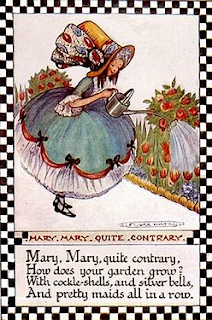There are many gateways to the high mountains in Brent, Montana, a small town on the Yellowstone River not far from the Park, and when Harlow Michaels began his climb into the Absarokas, he was a happy man. He had left Baltimore, a penitential, crime-ridden, nasty, race-baiting, uncivil place far behind, and looked forward to going where the issues of race and the ‘inclusive’ issues of gender and ethnicity did not exist.
The Western old growth forests were over a thousand years old sitting atop geological outcroppings more than a hundred times that, layers of schist, basalt, granite, and quartz dating back to the Pleistocene and even farther to the volcanic formation of the earth. Walking there would not only be a refuge but a trip back to origins, a pre-historical place.

Michaels had been fascinated by the idea of remoteness for years – an interest in the idea of solitude itself, a sui generis state of being – and only recently had the notion taken on a sense of refuge. The more Baltimore became a violent, angry, disputatious, and ungovernable place, the more the Thoreauvian idea of the state of nature appealed to him. It was not so much ‘getting away from it all’ but getting to the heart of the matter. Aloneness, individual identity without ascription, a spiritual evolution.
The city he left had become an example of the worst of American urban dysphasia, a racially hostile place allowed to fester and turn inward by notions of racial laissez-faire. A city governed by the same diffidence arranged as progressive policy.
Idealistic notions of difference which ignored the growing disregard for moral order and assumed that innate goodness and respect would eventually out.
However, one municipal administration after another watched as the inner city befouled itself. The infection of morally and socially blighted communities led to ‘moral flight’, a phenomenon attacked by liberals as white flight but nothing less than decision to leave a place without internal order or moral code. The more white families left the city, the more the inner city became the whole city, and a pervasive ungovernable ethos spread. It was no wonder that Harlow Michaels sought refuge in Montana.
The American Transcendentalists were the first to codify the spiritual nature of natural experience. Thoreau wrote,
I went to the woods because I wished to live deliberately, to front only the essential facts of life, and see if I could not learn what it had to teach, and not, when I came to die, discover that I had not lived.

For Harlow it was indeed a wish to ‘front only the essential facts of life’, but not necessarily to learn what Nature had to teach. His was an existential fugue of a different genre. His was a desire to escape a world gone awry – to find out whether solitude and a complete recession from social interaction was simply a temporary balm, a remediation, or simply a naïve attempt to leave troubles behind. Was he a seer of sorts, a malcontent, a seeker, or a philosopher?
At first in the deep, dark, old growth forest, he drew deep, restorative breaths, felt a calm and moral resolution. The woods were indeed a respite, a refuge, but also a resolution. There were problems better left alone, too complicated to be disaggregated or deconstructed. Social outbursts are really not problems at all but repetitions of the endless cycles of expression. Anger, violence, territorialism, self-interest, aggression are not some random, unfortunate occurrence on the streets of Baltimore, but something native, a given in all human beings, tamed and tempered in some, released with fireworks in others. Escape to the wilderness was for better or worse escape from human society.
The hectoring, dunning, badgering, and bullying about racism, misogyny, and homophobia was loud and strident, far more insistent than even the collective outrage of the civil rights era. American society was becoming more contentious, more divided, and more hostilely opposed than ever before. Now, more than ever was time for Absaroka solitude.
Hinduism has many states of becoming – a man is a student, a householder, a spiritual wanderer, and finally enlightened. One cannot jump steps. Each is predicated on the former; each necessary to becoming; none to be ignored. So, thought Harlow, am i simply a neophyte, a pretender, a naïve explorer into reaches I can never fathom?

There were neither ho’s nor pimps here. No spinners, bling, or attitude. No street creds, dopers, lock ups, single mothers, or street creds. The stark, irreconcilable differences must mean something, he considered. Either they exposed innate contradictoriness or were pleas for compromise and integration. Was fugue tantamount to avoidance? Isolation abandonment?
On the other hand what about the millennia-old moral injunctions of the Jews, the latter day apocalyptic revelations of Christianity? Wasn’t there an absolute code of moral behavior that was the key to both spiritual evolution and social accommodation?
Harlow walked farther and farther and deeper and deeper into the woods, and although the pathway was marked and well-used, he became anxious. Would darkness fall before he left the wilderness? Would he take a wrong turn and end up lost and completely alone? The moment was unsettling since he had invested so much of himself in the forest. Why if the forest was a given, a millennia-old pre-human place, was he concerned?
At each turn, there was the palpable feel of bad attitude, insolence, righteousness, and selfish accusations. In Baltimore he was less physically threatened by violence and physical assault than he was by implied intimidation – dismissals by insolent counter clerks, deliberate avoidance and impolite snubs, implicit refusal to accommodate, every proprietary claim – and each time he could tolerate and forgive less. ‘Inclusivity’ had become a ticket for irresponsibility, a get-out-of-jail-free card, an open invitation, a free pass. Inclusivity was a worse form of incarceration than any prison. it condemned the individual to perpetual moral childishness and disrespect. It locked in the street culture, the culture of dysfunction, and attitudes of entitlement, walkin’ around money, and perpetual social marginalization.

There were indeed absolutes in the world and moral probity, social reasonability, and an innate sense of right and wrong have been precepts of all successful civilizations since the first human settlements. What was happening in Baltimore was anti-historical, anti-human, and certainly counter to the streams of religious rectitude.
Thank God there is no diversity in the woods, Harlow concluded. It would be unwanted and misplaced. The very nature of progressive diversity – the lionization of some, the dismissal and rejection of others, and the self-assured inviolability of the liberal canon – is a false idyll.
He left the woods and returned to Brent, a place whose climate, geography, and economic history have made it a uniform town, one whose diversity has always been subtle and never called out; one whose familiarity is the key to congeniality and good faith. A lack of racial dispute and angry disputatiousness lets problems be resolved simply; no identities need to be parsed, exposed, or concluded. Man and women are ranchers, breeders, schoolteachers, carpenters, or day laborers as the market demands. They are not too good for anything. Family, security, and responsibility come first and last.
So Harlow realized he would not have to take refuge in the Absarokas. Brent would be more than enough salve for his social cuts and bruises, a good place to live, a fine place.
He left Baltimore and its raging political reformism, irreconcilably nasty ghettoes, and selfish, patronizing, entitling government behind. He became a Montanan in principle, outlook, belief, and philosophy.















